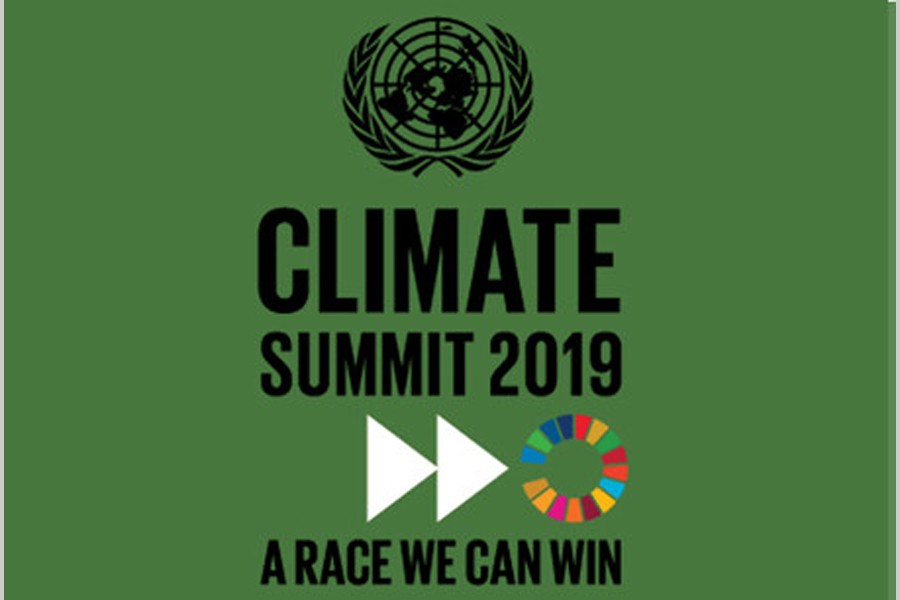The United Nations hosted a momentous meeting Monday at its headquarters in New York titled UN Climate Action Summit 2019, with sixty government leaders participating. The UN Secretary General Antonio Guterres underlined the meeting's goal by stressing the word 'Action' with a call to start concrete work rather than making pledges and plans only. Guterres, a former Prime Minister of Portugal, is accepted as one person who is trustworthy and dedicated as evidenced from his work as his country's leader where he achieved reasonable success on the climate issues. In a twitter message on the occasion, he said: "Today's Summit saw real, concrete action from business, governments, cities and many more. But we are not yet there. We need more ambition, more pressure, and more good, old-fashioned truth-telling. We can and must prevail -- for ourselves and for future generations." From the `future generation' the world heard the heart-touching speech of Greta Thunberg, the sixteen-year-old Swedish teenager who indeed has been at the centre of a year-long protest of youngsters that climaxed in world-wide rallies last Friday. At the United Nations, she ended many paragraphs of her speech with the words "How dare you" pointing to the senior leaders' inaction for long as her generation's future was being compromised. She tweeted later: "Right here, right now is where we draw the line. The world is waking up. And change is coming, whether you like it or not."
Indeed governments, the private sector, civil society, local authorities and international organisations have been involved with the Summit raising new hopes. The Financial Express carried an item on its front-page last Monday wherein it was reported that fifty-nine new signatories from among the businesses had joined the UN Global Compact raising the total number to 87. Their combined market cap is USD 2.3 trillion, including such multi-national stalwarts as Swiss Re, Danone, Ikea, Salesforce and L'Oreal, all of which have pledged to cut greenhouse emissions. Good news indeed, nonetheless, reminding us in the words of the Secretary General `we are not there yet'. A lot of ground must be traversed. Next year, 2020, is the year when the Paris Climate deal of 2015 will be scrutinised. Already it is known that the five years between 2014 and 2019 have been the hottest in recorded history.
Has Bangladesh trodden the right path so far? Natural gas is the largest provider for our power generators. However, provision for the use of coal, the most polluting of fossil fuels, is expanding as more power plants get approved. Though many of the vehicles, especially in the largest two cities, run on natural gas, diesel and petrol are used in the rest of the country. The Ministry of Environment, Forest and Climate Change with the Department of Environment as its regulatory and implementing arm issues environmental clearance certificates for new industries. Whether their work output is up to the internationally accepted standard is one question that they must find an answer through systematic studies. Destruction of our forests has been a regular item in newspapers. Most of the rivers around big cities have been polluted, hopefully not beyond redemption. The authorities' duty under these circumstances is huge. Not lip service but serious and effective action is needed. These will have to be multidimensional and multipronged, meeting international standards while suiting our conditions. The concerned bodies must be empowered with proper delegation of authority, manpower, skill sets, and legal teeth, if needed. The bottom line is: Let's draw the right conclusions from the UN Climate Action Summit 2019.


